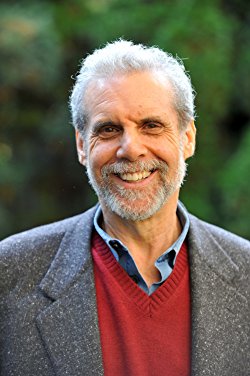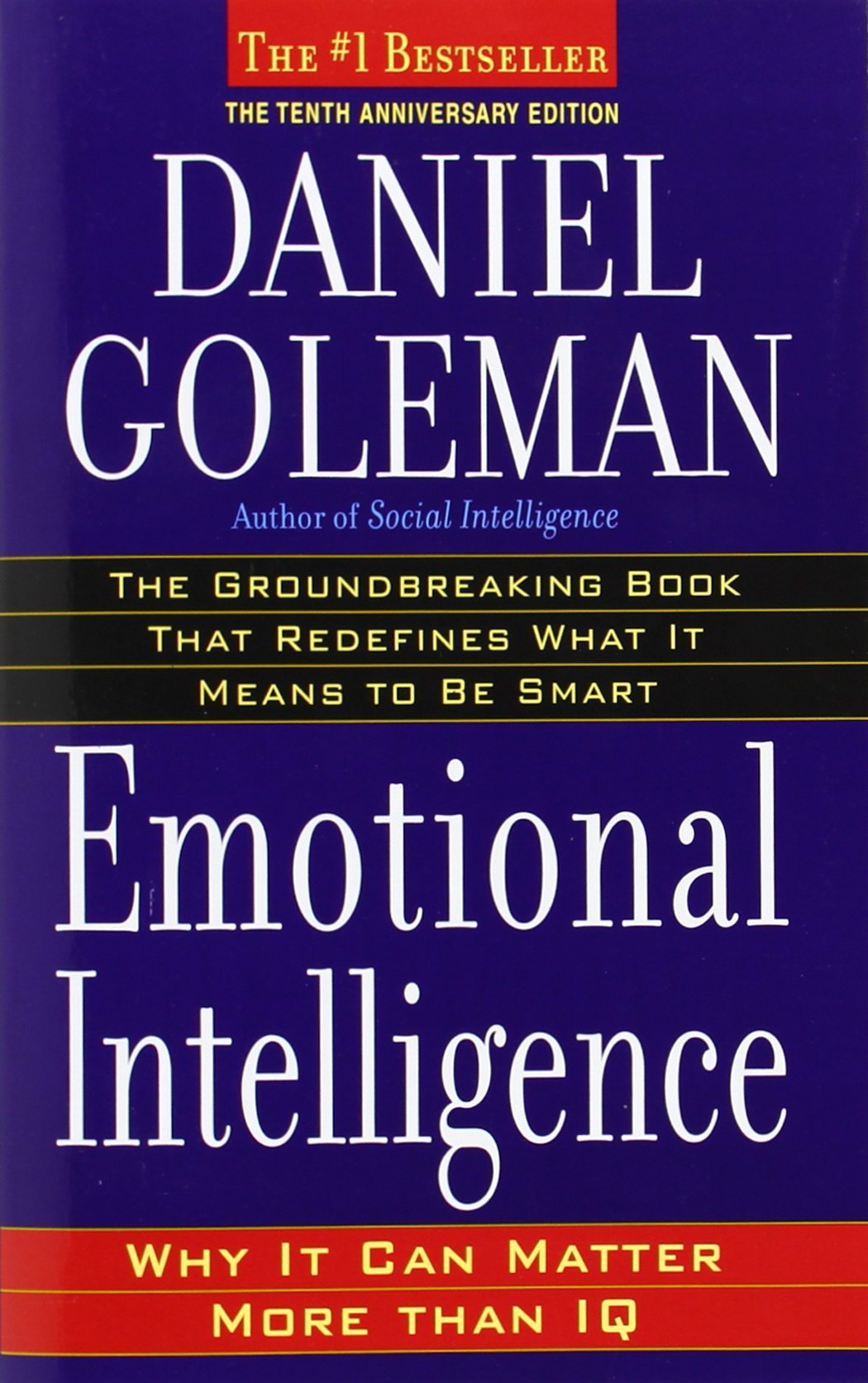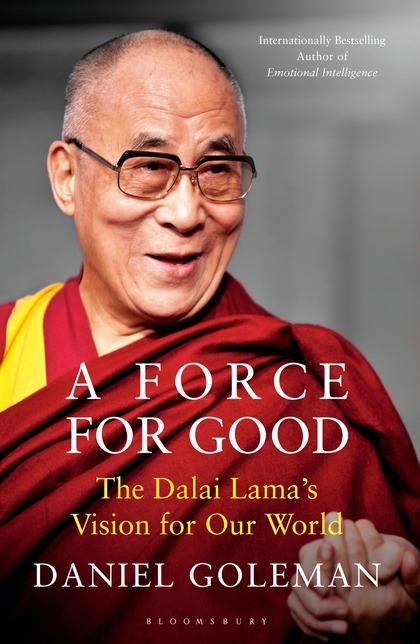Daniel Goleman – A Journey of 100 steps

5 min read ⌚
If all we need is step one, then we are here to push you over the edge, if you lack the courage to take it!
Understand the game, improve your decision-making skills, and take control of your life.
Who is Daniel Goleman
 If you are a book lover and prefer the classic non-fiction best-sellers, then you must have heard of Daniel Goleman.
If you are a book lover and prefer the classic non-fiction best-sellers, then you must have heard of Daniel Goleman.
He was born on March 7, 1946, in California.
As a notable and outstanding both author and science journalist, Daniel’s expertise and contribution to the society are out of the question.
It’s reported that Daniel spent more than a decade writing for The New York Times Magazine, covering niches such as exploring the human behavior, the structure of the brain, and other appealing topics.
The 1995 bestselling book – Emotional Intelligence certainly deserves high-merits for maintaining the first-spot on New York Times Best Seller list for over a year.
Translated into approximately 50 languages, Daniel Goleman sure made a name for himself.
Indeed, Daniel Goleman’s input regarding the understanding of the human nature is far more significant than anyone can imagine.
Covering a wide range of psychological topics such as self-help, morality, deception, ecology, creativity, ethics, brought him to the very steps of greatness in the realm of behavioral science.
At this moment, Goleman is regarded as being one of the founders of the “Collaborative for Academic, Social and Emotional Learning – (CASEL).” This program based at the University of Illinois – Chicago has a task of awakening the young population by promoting emotional literacy – all across the nation.
Daniel also spent quality time in India, and while studying there, he met a spiritual master or a guru known as Neem Karoli Baba.
His whole life change, to the degree, that he started questioning the existence and all the elements in it.
In reality, his writing career officially begun, while he was engaged otherwise in Southern Asia. Daniel wrote his very-first book while traveling in India and Sri Lanka.
Afterward, Goleman started lecturing at Harvard, meanwhile, the psychology of human behavior as a discipline was growing in popularity. As a recognition of his accomplishments, or as an icing on the cake he received an offer to write for The New York Times in the mid-80s
It’s worth mentioning that currently, Goleman co-operates the Consortium for Research on Emotional Intelligence in Organizations located at Rutgers University.
The consortium mainly places emphasis on building strong links between various academics and organizations to discover the role of emotional intelligence in the material world.
If you are duty-bound to disagree with some of his ideas and claims, feel free to follow your instincts. That is, in fact, the very core of his teachings.
As a valuable asset, member and a partner of the Mind & Life Institute his reputation remains intact.
Daniel Goleman agrees with his colleagues that scientists and other experts should rely on dialogue and mutual understanding for improving the quality of the research papers.
As an award-winning author who distinguished himself in many fields linked to psychology, he continues to inspire us with his knowledge and in-depth understanding of life.
Whenever we feel stressed out, that’s a signal that our brain is pumping out stress hormones. If sustained over months and years, those hormones can ruin our health and make us a nervous wreck.
Best Daniel Goleman Books
#1. Emotional Intelligence Summary: Why It Can Matter More Than IQ
 If you haven’t read “Emotional Intelligence” we advise you to fix that as soon as possible. Daniel presents several models of EI in an easy-digestible form. The design of the “prototype” depends on whether you perceive EI to be an ability or a characteristic.
If you haven’t read “Emotional Intelligence” we advise you to fix that as soon as possible. Daniel presents several models of EI in an easy-digestible form. The design of the “prototype” depends on whether you perceive EI to be an ability or a characteristic.
In this book, you’ll find that EI is explained as a set of skills, and features that mainly serve to awaken the inner beast within you. At the end of the day, without the leading edge, you can’t go too far.
One of the models was developed and launched by Konstantin Vasily Petrides, who also clarified its use.
Many have reported that through self-inquiry one can achieve almost everything. Willingness and hard work added on behavioral understand can enhance managerial performance and productivity.
General intelligence is actually on the same wavelength as EI. One must grasp that behavioral science has its complex roots and only a few privileged among us can thoroughly explore them.
In a very real sense we have two minds, one that thinks and one that feels.
#2. A Force for Good Summary: The Dalai Lama’s Vision for Our World
 If you ever questioned – Why should I choose to find a peaceful resolution to all my troubles, when I can simply muscle my way into anything. Dalai Lama teaches otherwise, and his methods are best illustrated in real life examples.
If you ever questioned – Why should I choose to find a peaceful resolution to all my troubles, when I can simply muscle my way into anything. Dalai Lama teaches otherwise, and his methods are best illustrated in real life examples.
For instance, it’s widely known that he refuses to take arms, even though his native Tibet, was annexed by Communist China, after the WW2.
For years, he held many meetings and seminars throughout the world, sharing his wisdom, compassion, and love for all beings. In this regard, the 14th Dalai Lama has received many rewards for endorsing a nonviolent approach towards the problem-solving enigma.
Many share his ideas, but no one is able to execute them as he does. The world has its troubles, but we should stop putting them underneath the carpet, and pretend there’s nothing to be dealt with.
Define your values, and start doing something for the community, today.
In his memoirs, Dalai Lama explains how doing good, can never be a meaningless task.
In the battle against imperialism and material interest, he stands toe to toe with all great leaders, expressing his gratitude and love to all people.
Live your life in such a way that you’ll be remembered for your kindness, compassion, fairness, character, benevolence, and a force for good who had much respect for life
#3. Focus Summary: The Hidden Driver of Excellence
 Should we say more? In Focus, it’s pretty evident that Daniel Goleman, the author of several bestsellers, is trying to evoke a new mindset, which gives priority to the value of paying attention.
Should we say more? In Focus, it’s pretty evident that Daniel Goleman, the author of several bestsellers, is trying to evoke a new mindset, which gives priority to the value of paying attention.
Productivity and embracing high-performance habits as processes can never be reachable, nor feasible if you fail to stay concentrated.
This book is a mix of up-to-the-minute research and practical agenda that constitute a valuable tool against any signs of laziness.
It all comes down to three perspectives: inner, other, and outer focus. Information drawn from reliable sources is only an incentive more for you to become high-achiever and reject the idea of developing into an underdog.
Directing attention toward where it needs to go is a primal task of leadership.
Like this summary? We’d Like to invite you to download our free 12 min app, for more amazing summaries and audiobooks.
“Daniel Goleman Quotes”
The intuitive mind is a sacred gift and the rational mind is a faithful servant, Albert Einstein once said. - We have created a society that honors the servant and has forgotten the gift. Share on X The antidote for mind wandering is meta-awareness, attention to attention itself, as in the ability to notice that you are not noticing what you should, and correcting your focus. Share on X When the eyes of a woman that a man finds attractive look directly at him, his brain secretes the pleasure-inducing chemical dopamine - but not when she looks elsewhere. Share on X Our emotional mind will harness the rational mind to its purposes, for our feelings and reactions-- rationalizations-- justifying them in terms of the present moment, without realizing the influence of our emotional memory. Share on X People with well-developed emotional skills are also more likely to be content and effective in their lives, mastering the habits of mind that foster their own productivity. Share on XFinal Notes
What would you do, if you ever have the chance to change the world? Do we go too far?
Have no fear, follow your dreams, and don’t let others control your destiny.








